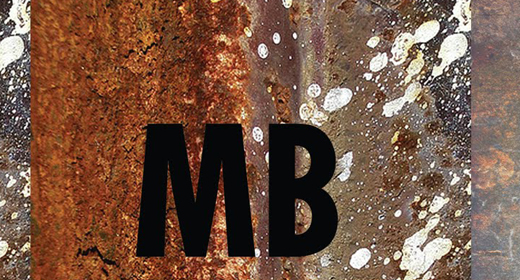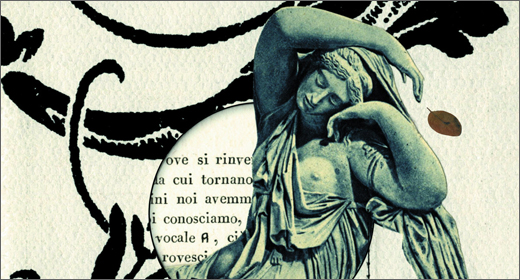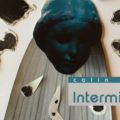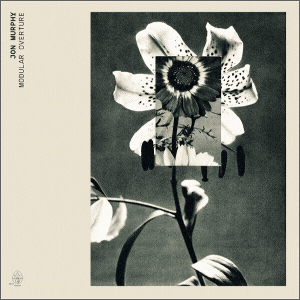With over 100 recordings to his name under numerous imprints, now in his latter 50’s, Bianchi is the sort of composer to be reckoned with only now gaining a mysterious second wind with output growing exponentially in the last few years.

(December 2011) MAURIZIO BIANCHI, the enigmatic Milanese sound composer (considered by many as the father of the noise movement) is back to business after a very short yearlong hiatus. His work, which grew out of the “cassette culture” of the late 70’s and 80’s embodies masterful principles that evoke the sixth sense while dispensing demons of sorts. With over 100 recordings to his name under numerous imprints, now in his latter 50’s, Bianchi is the sort of composer to be reckoned with only now gaining a mysterious second wind with output growing
exponentially in the last few years.
TJ Norris :: Greetings sir. I appreciate having this opportunity to connect with you.
Maurizio Bianchi :: Actually I’m at a crossroads in my past, present and future production, and I strive to celebrate the decline of the current system doomed from the ancient biblical prophecies to a disastrous end, but there is a chance to save.
TJN :: As a young man in Italy how were you first exposed to music, what were some of your early familial influences?
MB :: Initially I was exposed to the so called pop music until the early part of the 70’s when I started to listen to more cerebral/experimental sounds. My musical influences are the early Tangerine Dream, Kluster and the musique concréte. And the psychological influences are rooted in the stupidity of mankind who thinks to govern themselves without the help of the Supreme Spiritual Being, and the results we see all around us.
TJN :: Some of that becomes evident in the finer points of how you use tone and velocity in your work. How have these early experiences fed into your current strategies if at all…are there residual ideas you constantly rework as source material?
MB :: The question is a little complicated but the answer is very simple: there are many fragments but only one collage, my creativity.
TJN :: Your work has been released under both your full name and initials M.B. For what reason? And can you say something about the use of aliases?
MB :: At the beginning I used the alias of Sacher-Pelz, after that I started to use the acronym M. B. to give a mysterious identification of myself, and then I used my full name to be aware of my whole constructive instinct.
TJN :: Most people keep sacred their beliefs. Can you speak about how religion has in your creative practice? I often hear muted voices (speaking in tongues?) strewn throughout…
MB :: In the current secularized society, my faith is the foundation of my life, and the music is only a reflex of my inwardness, and the result is a plain satisfaction. Concerning the voices, they are not real voices, but treated sounds that seem like voices but in fact they’re synthetic.
TJN :: Since the late 70’s you have released an impressive discography of over one hundred recordings with nine new releases in 2011 alone on labels such as Lona Records, Mirror Tapes and your very own label Menstrual Recordings. Are most of these works re-releases or are you constantly in the studio?
MB :: Most of them are re-treatments of my previous sounds because I like to express my music in different ways in order to have a wide variety of solutions.
In this egotistical world, the collaborations are a sort of exchange of communication and dialogue, a philanthropic enrichment and a spiritual edification.
TJN :: Speaking of new releases, one that captured my attention readily is Hibernum on EE Tapes. A work of sheer curiosity and depth the sounds you are making seem to grow from a vortex of cinema noir. It’s as if you took reel-to-reels and at points scraped them through shallow gravel, yet there is something ambient and peaceful embedded. Made up of three distinct segments (with interesting dates) it made me curious about its titles. Can you say more about this work?
MB :: This work is in fact a compendium of my 3 past decades of activity, and it’s projected into the future with an eye on the present.
TJN :: You have had many collaborators over the years including Telepherique, Cría Cuervos, Maor Appelbaum, Nimh and Aube. Can you please talk about your collaboration?
MB :: In this egotistical world, the collaborations are a sort of exchange of communication and dialogue, a philanthropic enrichment and a spiritual edification.
TJN :: What do you speculate as trends in the field of improvisation, something that may offers anything new in the theater of sound these days? What seems innovative or strikes a chord with you?
MB :: There are new possibilities, but not opened to new directions because of the lack of creativity. The innovative is not always a progress, but often a regression because the author is embedded by the machinery devices.
TJN :: As far as labels are concerned Silentes Minimal Editions of Treviso (formerly Amplexus) has released more of your work than others.
MB :: The owner of the label, Stefano Gentile is a very professional guy and he was very positively impressed by every work I proposed to him because in common we have the same emotional feeling towards the experimental genuineness.
TJN :: Some would describe your work in terms of dark ambient, gothic electronica – what do you think of such labels and descriptors? How might you describe your expectations of an overall signature sound?
MB :: Posterity will judge, because his contemporaries are too limited.
TJN :: Do you have a significant other?
MB :: I’m happily married for more than 27 years and my home life is focused in edification of the family and in spreading the word of God to all kind of people, without prejudices.
TJN :: Stories have circulated that there have been times where you have just stopped composing for periods of time. Is that true and if so is it simply to recharge? All artists need respite, but like a painter knowing when to put the brush down and say the work is done, how do you play into this sense of pause?
MB :: I stopped to reflect on my spiritual attitude and focus on adoration. After a while I went back to express my inner growth.
TJN :: Have you presented your work live?
MB :: I’ve never performed live because my sound is based on the cerebral and physical, to prevent further superficialization of the masses.
TJN :: Your work has most definitely influenced younger composers. I can hear crossover in recordings by Troum, Michael Northam, Alessandro Tedeschi (Netherworld), Aidan Baker and others. Your freeform style has opened doors for these and others. Do you think it is important to pass on your principles of practice to new generations somehow – either through teaching or scripting didactic conceptual theory?
MB :: I am sure that the seed sown is producing excellent fruit through these young artists, and am happy to have traced a groove that will not be extinguished easily. It’s much better than a sterile academic address to the futility creativity almost grazes.

















![Allmanna Town :: 1911 EP (Self Released) — [concise]](https://igloomag.com/wp/wp-content/uploads/2025/03/allmannatown-1911_feat2-75x75.jpg)








